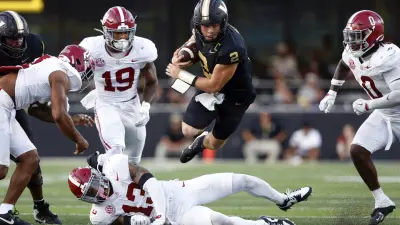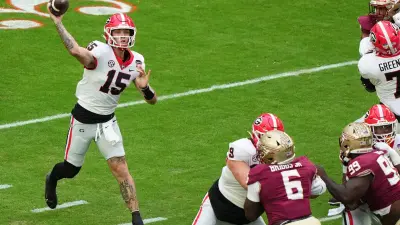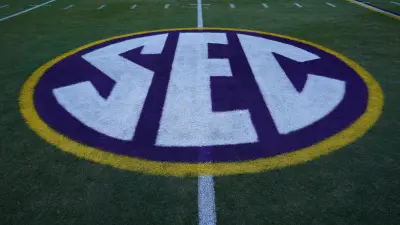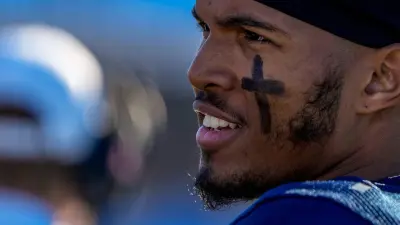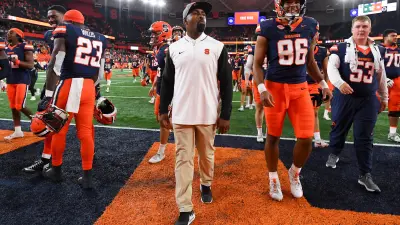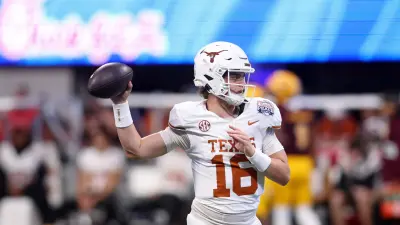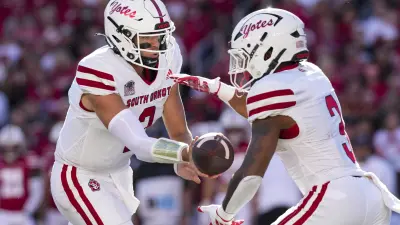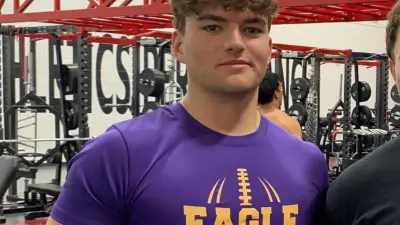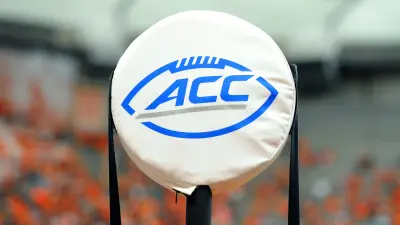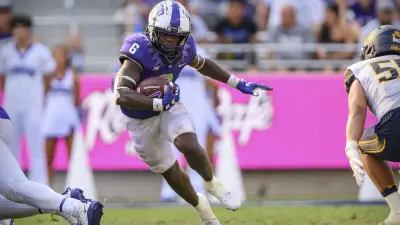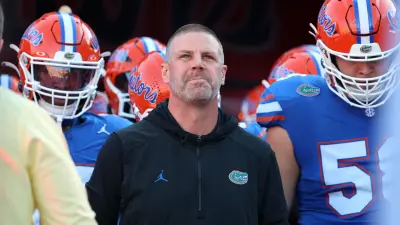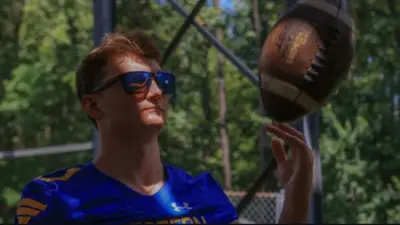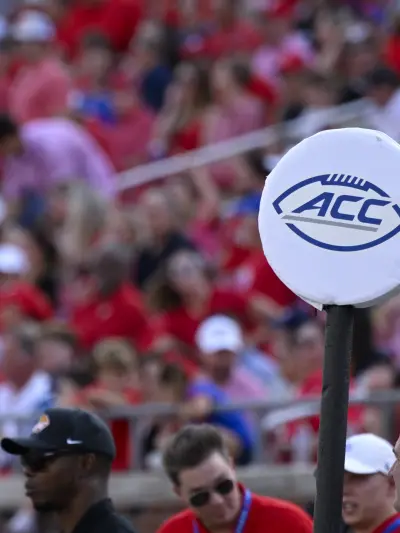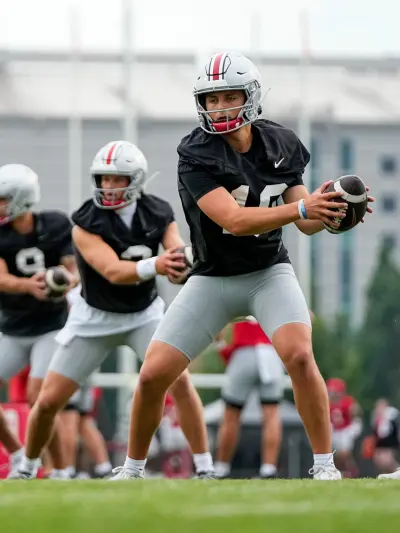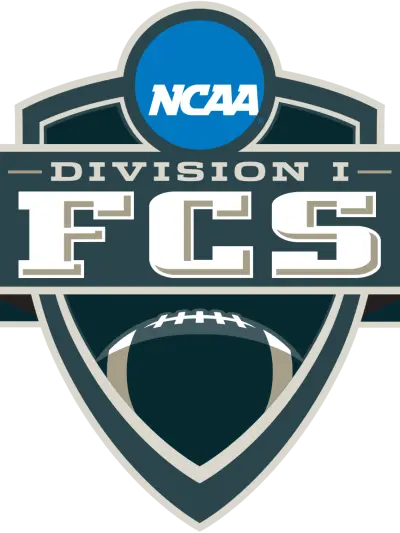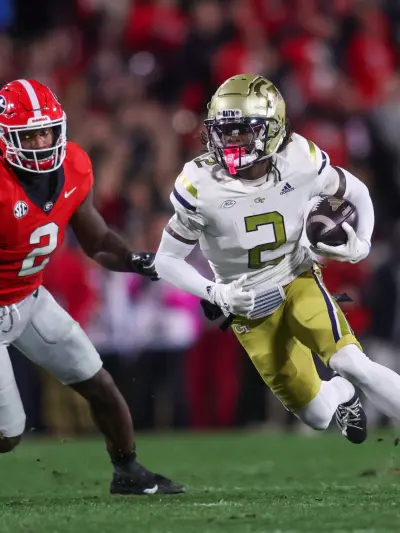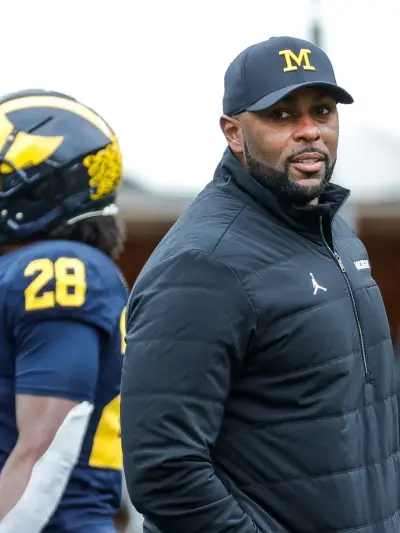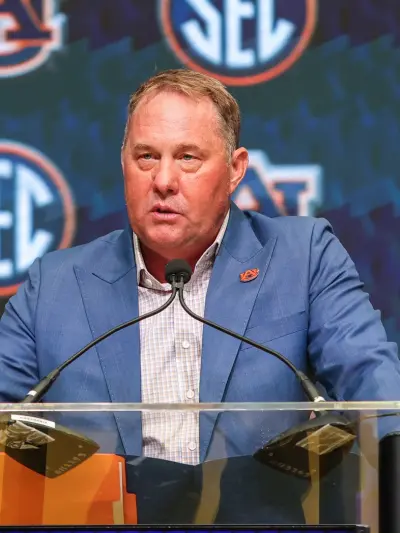By Rock Westfall
Not that long ago college football players had limited rights, if any rights at all. All they had were six-figure college educations, lavish training tables, and housing. Not bad for “slaves,” as players’ rights advocates and social justice warriors described players at that time.
As revenues and coaching salaries grew, so too did demands that the players get a piece of the pie. Yes, the players deserved a cut of the action. They also deserved to be able to transfer to other schools in the same way that coaches could cut and run for another job.
However, just as the pendulum previously swung too far for the schools and coaches, it has now swung too far the opposite way for the players. Now, players can gain extra years of eligibility that can lengthen their careers by nearly a decade. Additionally, they can have nomadic careers that include stops at multiple schools. The situation is becoming like pro sports, where players can move via free agency and play for several teams.
Just as it is getting harder to track pro rosters, college football is falling into that trap. Furthermore, the cost is being passed along to the consumer. Fans and donors are paying much more than in the past to accommodate the “rights” of spoiled and entitled players.
NCAA has agreed to allow schools to directly pay players for the first time in history
Over $2.7B will be paid out in damages to past and current athletes over the next 10 years pic.twitter.com/5leN2BryCF
— Culture Crave 🍿 (@CultureCrave) May 24, 2024
More Sports News
There is No Law – A Crumbling Foundation
Unlimited transfers, money, and extra years of eligibility are eating away at the fabric of what made college football special. When a sport loses its foundation and teams lose their identities, business and revenue will be lost.
Examples of the system being abused are more common. Players are being granted benefits and rights that were once unfathomable. The reason is that the feckless NCAA is terrified of lawsuits and has not developed a workable standard.
What college football needs is a grown-up in the room. Instead, the game is now run by increasingly powerful players, generous eligibility extensions, opportunistic and conniving lawyers who don’t care about the sport and its health, and the Almighty Dollar.
Cam McCormick of the Miami Hurricanes is a great example of playing into eternity. McCormick made history in 2024 by being granted a ninth year of eligibility, enabled by a redshirt, medical hardship waivers, and the COVID year.
Utah Utes QB Cam Rising, who was in his seventh season, injured his leg earlier in the 2024 campaign and was declared out for the year. However, a proposed settlement between the NCAA and the Justice Department makes an eighth season of eligibility in 2025 entirely possible.
Meanwhile, Rice Owls QB JT Daniels had to retire after the 2023 season because of concussion issues, but not before playing six seasons for four teams.
This year, Matt Sluka quit as the UNLV Rebels starting quarterback in September after a 3-0 start because he was allegedly not paid $100,000 as agreed upon when he transferred from Holy Cross.
Offensive lineman Kadyn Proctor briefly left the Alabama Crimson Tide last winter for the Iowa Hawkeyes and a cup of coffee, only to return to the Tide after taking NIL money from the Hawkeyes.
And then there is the case of Vanderbilt Commodores QB Diego Pavia, who is suing for an extra year of eligibility. Pavia is part of one of the greatest stories in the 2024 season, leading Vanderbilt to a win over Alabama and bowl eligibility.
Pavia, who is in his final year of eligibility, expects to play in 2025 and collect over $1 million for doing so. Pavia sued for immediate relief and was denied on Tuesday, but the case is far from over. Pavia contends that two years of junior college football should not count against his eligibility.
The entire affair is becoming a distraction from what should be a dream season for Vandy. Pavia will make a case that the NCAA is denying him a way to make a nice living and could well win, considering today’s favorable legal climate for players.
Vanderbilt's Diego Pavia files lawsuit vs NCAA in hopes for extra season of eligibility https://t.co/Oa6vByv0hA
— Tennessean (@Tennessean) November 9, 2024
Time For the NCAA To Go Passive-Aggressive?
It has reached the point where the NCAA might consider waiving the white flag on permanent player eligibility. After all, it has already capitulated on the transfer portal.
Part of what made college football great was seeing young kids grow into men during a period of four to five years of development. By the time Senior Day arrived, there was a bond between the player, his school, and the fans. That tradition is being scrapped for a mercenary culture where programs lose their identity and cultures, and fans can’t keep up with the revolving door.
Additionally, with the notable exceptions of Matt Rhule of the Nebraska Cornhuskers and Dabo Swinney of the Clemson Tigers, too many head coaches are coaching scared out of fear of players leaving their programs in a huff over playing time or being coached too hard. College football fans recoil at the students terrorizing the teachers.
For those who think that unlimited player movements and payments are great, consider college basketball. College hoops were once a big deal. Now, it is a two-week rush of brackets and prop betting each March. Teams have no identity because of player movement and NIL. Nobody knows which players play for which teams.
In the professional ranks, Major League Baseball was once the national pastime. Now, it is a niche sport with megamarket brands dominating the smaller markets. Millions of fans have left the sport because of continuous player movement, higher costs to attend games, and a lack of competitive balance.
Players’ rights advocates have gotten what they wished for. Now, some of them are whining that the game is out of control.
Seriously?
Cam Rising gearing up for his 20th season as Utah's quarterback pic.twitter.com/3yFwIEbYh7
— 𝕬𝖓 801 𝕺𝖗𝖎𝖌𝖎𝖓𝖆𝖑 (@TheJazzyUte) June 2, 2024
